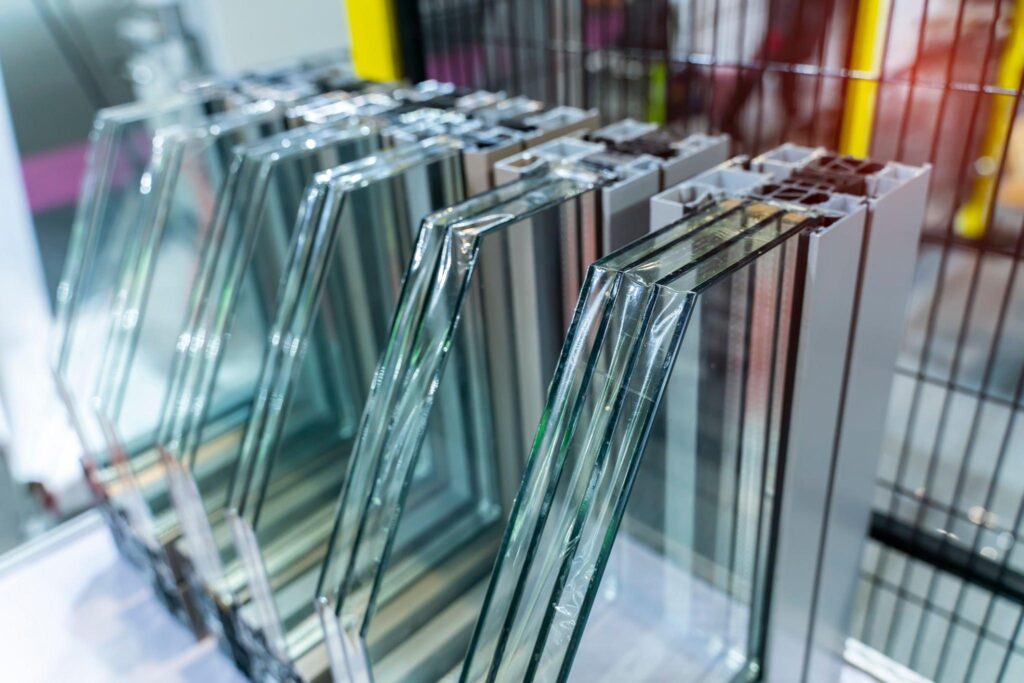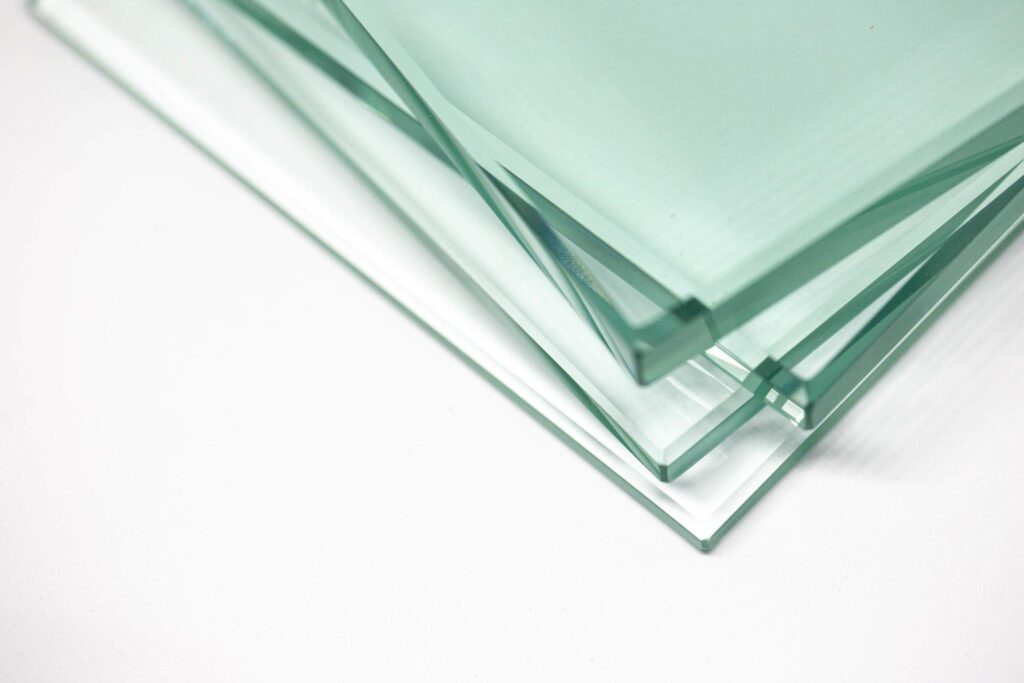
Table of Contents
Architectural glass has revolutionized the way buildings are designed and constructed in modern times. Both residential and commercial structures choose it for its unique properties when designing windows and facades. As well as providing a pleasing aesthetic appearance, glass also serves as an excellent insulator in buildings, contributing to energy efficiency and comfort. Glass is considered to be an effective insulator for buildings for a number of reasons, which are explored in this article.
Glass has been used in architecture for centuries, but advancements in technology have significantly improved its insulating properties. With the growing emphasis on energy conservation and sustainable construction, the role of glass as an effective insulator has gained prominence. Let’s delve into the key reasons why glass is a good insulator for buildings. You can contact us for your glass projects at tel:+1 602 300 0851
Check out our high quality glass products here:
Understanding Insulation
Insulation is a crucial aspect of building design as it helps maintain comfortable indoor temperatures and reduces energy consumption. Effective insulation prevents the transfer of heat between the interior and exterior of a building, ensuring optimal thermal comfort for its occupants.
Thermal Properties of Glass
Glass possesses specific thermal properties that make it an excellent insulator. Its ability to control heat transfer and its transparency are key factors that contribute to its insulation capabilities.
Solar Heat Gain Control
Glass can control solar heat gain, which is the amount of heat transferred from the sun into a building. Advanced glass technologies, such as low-emissivity (low-e) coatings and spectrally selective coatings, allow for the regulation of solar radiation. These coatings help reduce the amount of infrared and ultraviolet (UV) radiation that enters the building while allowing visible light to pass through. By controlling solar heat gain, glass aids in maintaining comfortable indoor temperatures and reducing the need for excessive air conditioning.
Nature of Glass
Glass is a unique non-crystalline solid, often amorphous in structure. Human beings have been harnessing its properties since around 3000 BC. Normally translucent, glass can also be tempered or tinted for specific applications. Glass is a strong material that can withstand the elements, such as sunlight, wind, and rain, in its solid state. The super-cooled liquid remains rigid and unyielding despite extreme heat but remains molecularly rigid when subjected to extreme heat.
Glass as an Electrical Insulator
One of the key reasons why glass is considered a good insulator is its atomic structure. In glass, the electrons within its atoms are closely bound to each other. Consequently, electrical current cannot flow through this material due to the inability of electrons to move freely between neighbouring atoms. A barrier to the movement of electric charge is formed by these materials, known as insulators, such as glass.
Sound Insulation
Glass also offers sound insulation properties, reducing the transmission of noise from the outside environment. Laminated glass, composed of multiple layers of glass with a polyvinyl butyral (PVB) interlayer, helps dampen external noise, creating a quieter and more peaceful indoor environment.
Historical Significance
In the early days of telecommunications, glass played an important role as an insulator. To protect cables and lightning rods from structures, telephone and telegraph companies installed glass insulators on utility poles. As early glass insulators, such as Lightning Rod Insulators (LRI), battery rest insulators, threadless insulators, and threaded insulators, these systems were safer and more efficient.
Contact Us For Unique Products And Services
Safety and Security
While glass is known for its transparency, it can also provide robust safety and security features. Toughened or tempered glass is often used in building applications, as it is more resistant to breakage than standard glass. In the event of a breakage, tempered glass shatters into small, relatively harmless pieces, minimizing the risk of injury. Moreover, laminated glass, with its interlayer, enhances the structural integrity of windows and provides protection against forced entry and extreme weather conditions.
Energy Efficiency
Glass’s insulating properties contribute to energy efficiency in buildings. By reducing heat transfer, glass minimizes the need for excessive heating or cooling, resulting in lower energy consumption and reduced utility costs. This energy efficiency is particularly beneficial in climates with extreme temperatures, as it helps maintain a comfortable indoor environment year-round.
Durable and Weather-Resistant
In its solid state, glass is strong and can withstand sun, wind, rain, and extreme conditions. It provides reliable insulation against environmental factors.
Environmental Benefits
The use of glass as an insulator aligns with sustainable building practices. By optimizing natural daylighting and reducing the reliance on artificial lighting, glass helps lower energy consumption and carbon emissions. Additionally, the recyclability of glass further enhances its environmental credentials, promoting the circular economy.
Maintenance and Durability
Glass is known for its durability and requires minimal maintenance. Properly installed and maintained glass windows can last for decades, providing long-term insulation benefits without compromising performance. This durability makes glass a cost-effective choice for building owners and reduces the need for frequent replacements.

Design Flexibility
Glass offers unparalleled design flexibility, allowing architects to create visually stunning and innovative building designs. From large glass facades to curved glass structures, glass provides endless possibilities for architects to realize their creative visions while still ensuring excellent insulation performance.
Limitations Of Glass Insulation
While glass offers numerous benefits as an insulator, it also has some limitations. Glass has a higher thermal conductivity compared to other building materials like insulation foam or concrete. Without proper design considerations, it can contribute to thermal bridging, where heat bypasses the insulating glass layer. Additionally, excessive use of glass without suitable shading strategies can lead to overheating during summers.
Future Innovations In Glass Insulation
The field of glass insulation is continuously evolving, with ongoing research and development focusing on enhancing its thermal performance. Innovations such as smart glass, which can switch between transparent and opaque states, and vacuum glazing, which provides exceptional insulation, are poised to revolutionize the industry and further improve the energy efficiency of buildings.
Conclusion
Glass provides an excellent insulation choice for buildings due to its unique combination of thermal properties, which includes low thermal conductivity, solar heat gain control, natural daylighting, and sound insulation. It is also very energy efficient, has a very low environmental impact, and has a lot of design flexibility. Energy-efficient and sustainable buildings will have an even brighter future thanks to ongoing advancements in glass technologies. Visit HalsInternational for more informational articles like these.
If you’re looking for quality glass fitting services or need glass manufacturing expertise, HalsInternational is your trusted partner. Contact us today to explore our comprehensive glass solutions.
Frequently Asked Questions:
Yes, glass is considered a good insulator due to its low thermal conductivity and ability to control solar heat gain.
Glass insulation reduces heat transfer, leading to lower energy consumption and reduced utility costs.
Yes, glass windows, especially laminated glass, offer sound insulation properties by reducing the transmission of external noise.
Glass is sustainable as it allows for natural daylighting, reduces the need for artificial lighting, and is recyclable.
Future innovations in glass insulation include smart glass and vacuum glazing, which offer improved thermal performance.
